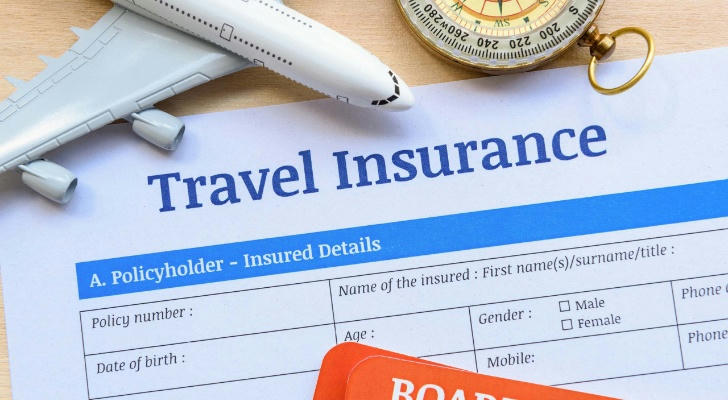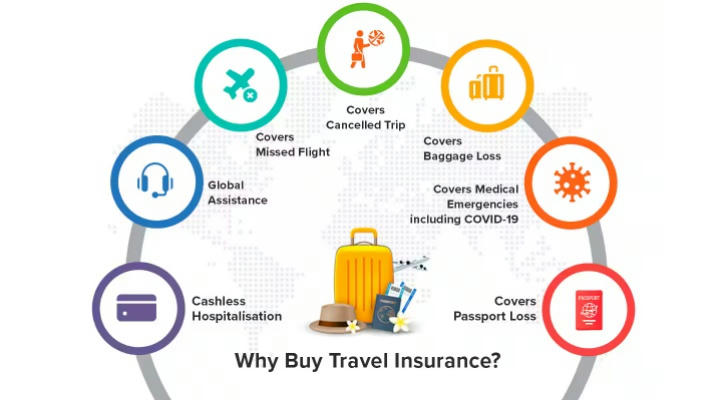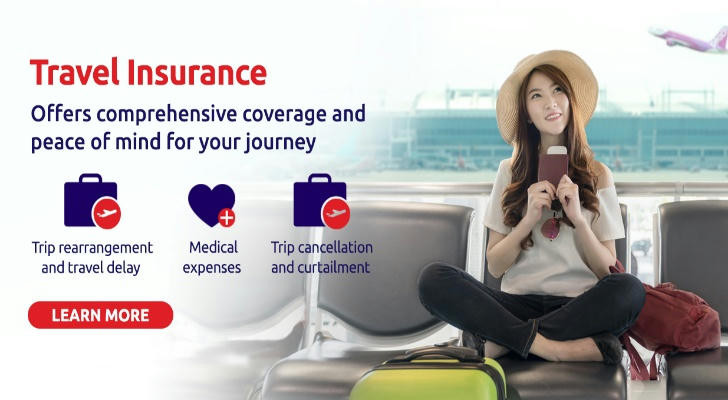Travel Insurance: Essential Protection for Your Trips
With the acceleration of globalization and the improvement of living standards, travel has become an indispensable part of many people's lives. Whether it's a short weekend getaway or a long international trip, travel not only provides opportunities for relaxation and exploration but also brings unforeseen risks. Flight delays, lost luggage, sudden illnesses, and accidents are all uncontrollable factors that can turn a pleasant trip into a nightmare. Therefore, travel insurance, as an important risk management tool, has gradually become a must-have for travelers before their journeys.

This article will delve into the importance of travel insurance, its coverage, how to choose the right travel insurance, and some common misconceptions. It aims to help readers better understand travel insurance and prepare adequately for future trips.
The Importance of Travel Insurance
1. Dealing with Emergencies
Travel can involve various unexpected situations, such as:
• Flight delays or cancellations: Bad weather, mechanical failures, or airline issues can lead to flight delays or cancellations, disrupting your itinerary.
• Lost or damaged luggage: Airlines or transport companies may lose or damage your luggage, resulting in the loss of important items.
• Sudden illness or accidental injury: You may fall ill or encounter accidents during your trip, especially abroad, where medical costs can be extremely high.
• Trip cancellation or interruption: Due to personal health issues, family emergencies, or other force majeure events, your trip may be canceled or interrupted.
Travel insurance can provide financial compensation and protection for these emergencies, reducing the traveler's losses.
2. Providing Global Medical Coverage
In many countries, especially developed ones, medical expenses are very high. Without insurance, a simple medical visit could cost thousands or even tens of thousands of dollars. Travel insurance typically covers emergency medical expenses, hospitalization, and medical evacuation, ensuring travelers receive timely medical care abroad.
3. Protecting Property
Travel insurance not only safeguards personal safety but also protects travelers' property. For example, lost luggage, misplaced passports, or credit card fraud can all be compensated through travel insurance.
4. Offering Emergency Assistance Services
Many travel insurance policies provide 24/7 global emergency assistance services, including medical consultation, legal assistance, and emergency cash support. These services help travelers get timely help when in trouble.
Common Coverage of Travel Insurance

Travel insurance comes in various types with different coverage. Below are the common coverage items in travel insurance:
1. Trip Cancellation and Interruption Coverage
• Trip cancellation: If a traveler cannot embark on the trip due to illness, family emergencies, or other reasons listed in the policy, the insurer will reimburse non-refundable expenses (e.g., airfare, hotel bookings).
• Trip interruption: If a traveler has to cut the trip short due to emergencies, the insurer will cover the unused travel expenses and additional return costs.
2. Flight Delay and Cancellation Coverage
• Flight delay: If a flight is delayed beyond a certain period (usually 4-6 hours), the insurer will compensate for additional accommodation, meals, and transportation expenses.
• Flight cancellation: If a flight is canceled due to airline issues, the insurer will cover the cost of rebooking.
3. Lost or Damaged Luggage Coverage
• Lost luggage: If the airline loses a traveler's checked luggage, the insurer will compensate for the value of the luggage (usually with a limit).
• Delayed luggage: If luggage is delayed beyond a certain period (usually 12-24 hours), the insurer will cover the cost of purchasing essential items.
4. Emergency Medical Coverage
• Medical expenses: Including outpatient, inpatient, and surgical costs.
• Medical evacuation: If a traveler needs to be transferred to a better medical facility or repatriated, the insurer will cover the evacuation costs.
• Dental emergencies: Some travel insurance policies also cover emergency dental treatment.
5. Personal Liability Coverage
If a traveler accidentally causes injury to a third party or property damage during the trip, the insurer will cover the corresponding compensation.
6. Emergency Assistance Services
• Medical consultation: Provides 24/7 medical consultation services.
• Legal assistance: Offers help in legal matters.
• Emergency cash support: Provides cash support in emergencies.
7. Other Coverage
• Lost passport: Covers the cost of reissuing a passport.
• Credit card fraud: Compensates for losses due to credit card fraud.
• Natural disaster coverage: If a natural disaster (e.g., earthquake, hurricane) occurs at the travel destination, the insurer will compensate for related travel expenses.
How to Choose the Right Travel Insurance
1. Choose Based on Travel Destination
Different countries and regions have varying medical costs and safety risks, so it's important to choose insurance based on the destination. For example, when traveling to Schengen countries in Europe, you must purchase medical insurance that meets Schengen visa requirements.
2. Choose Based on Travel Style
• Independent travel: Independent travelers need comprehensive coverage, including medical, luggage, and trip cancellation protection.
• Group travel: Group tours often include partial insurance, but additional medical coverage may be needed.
• Adventure travel: If travelers plan to engage in high-risk activities (e.g., skiing, diving, mountaineering), they should purchase insurance that covers such activities.
3. Choose Based on Personal Needs
• Family travel: Family packages are often more cost-effective than individual policies.
• Long-term travel: For long-term trips (e.g., several months), long-term travel insurance is necessary.
• Senior travel: Seniors may require higher medical coverage, so they should opt for policies with higher limits.
4. Read the Policy Terms Carefully
Before purchasing travel insurance, carefully read the policy terms to understand the coverage, exclusions, and claims process to avoid issues when filing a claim.
Common Misconceptions About Travel Insurance

1. "I Don’t Need Travel Insurance Because I’m Healthy"
Even if you're healthy, unforeseen risks like flight delays or lost luggage can still occur. Travel insurance covers not only health but also various travel-related risks.
2. "My Credit Card Already Provides Travel Insurance"
Some premium credit cards do offer travel insurance, but the coverage is often limited and may exclude emergency medical expenses or high-risk activities. Therefore, it's advisable to review the credit card's insurance details and purchase additional coverage if necessary.
3. "Travel Insurance Is Too Expensive"
The cost of travel insurance is usually a small fraction of the total trip expenses. However, in case of emergencies, it can save you significant costs. Rather than risking high potential losses, it's better to purchase insurance in advance.
Conclusion
Travel insurance is an essential part of trip preparation. It not only provides financial protection but also offers peace of mind. Whether it's a short trip or a long adventure, travel insurance ensures you can explore the world without worries.
When purchasing travel insurance, make sure to choose a policy that suits your needs and travel plans, and carefully read the policy terms. Only then can you truly benefit from the protection and convenience that insurance offers.
May every trip be filled with wonderful memories, and may every journey be safe and worry-free!
